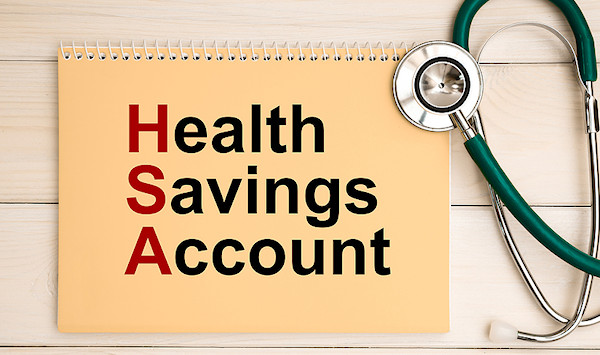
Are YOU Maximizing Your Tax Savings?
HSA’s are the most under-utilized tax planning strategy available to a lot of taxpayers. In order to contribute to an HSA, you first must have an HSA HDHP (High Deductible Health Plan) qualified health insurance plan. This plan can be obtained thru a group health plan or an individual health plan. Once you have a qualified HSA HDHP plan, you can then contribute to your HSA account. Your contributions are tax-deductible up to the annual contribution limit that you qualify for. Two other reasons HSA’s are so attractive is because you don’t need to have taxable wages AND there are no earnings limitations to qualify for an HSA. The only requirement is that you need an HDHP qualified health plan!!!
So, what makes HSA’s so attractive? You get ALL three tax advantages!!
TAX DEDUCTIBILITY – TAX DEFERRED GROWTH – TAX-FREE WITHDRAWALS
In other words, if the money that you withdraw from your HSA is used to pay for qualified medical expenses – YOU NEVER PAY ANY TAXES!! NEVER!!!!
With other tax advantaged investments, you only get 2 out of 3 of these tax advantages. Deductible IRA’s – tax deductibility and tax deferred growth. ROTH IRA’s – tax-deferred growth and tax-free withdrawals. But with HSA’s you get 3 out of 3!! So why aren’t more people maximizing their HSA’s? Because they need to be properly educated and unfortunately very few advisors are taking the time to educate their clients on all of the benefits of having an HSA. Until now that is!!
How Much Can I Contribute to My HSA?
There are annual maximum contribution limits based on whether you apply for single or family coverage. Each year, these limits are increased based on inflation.
HSA Contribution Limits
Tax year 2020 Tax year 2021
Single Coverage $3550 $3600
Family Coverage $7100 $7200
• If over age 55, you can contribute an additional $1,000
• If both spouses are over age 55, the spouse not listed as primary can contribute $1,000 into a spousal HSA – this needs to be put into a separate HSA account in their name
Also note that you have until April 15th of the following year to contribute to your HSA for the current calendar year. i.e. you have until April 15, 2021, to contribute for the tax year 2020.
If you have an HSA thru a group health plan you may qualify to contribute to your HSA thru payroll deduction which saves you an additional 7.65% in FICA payroll taxes.
Another relatively unknown fact about HSA’s is that if you are enrolled in an HSA HDHP plan on December 1st, you can contribute the entire annual contribution limit even if you only had the plan for one month in that year.
If you are enrolled in either Medicare Parts A or B, you may NOT contribute to an HSA even if you are covered by an HSA HDHP plan. It should be noted that when you do apply for Medicare Part B, your Medicare Part A coverage effective date is backdated 6 months, so you need to stop your HSA contribution 6 months prior to when your Part B will become effective. This rule is often overlooked and you can incur significant penalties if you are not in compliance.
What Can I Use My HSA Money For?
As long as you use your HSA to pay for qualified medical expenses as listed in IRS Publication 969 – Health Savings Accounts and Other Tax-Favored Health Plans, you NEVER pay taxes!
Here are a few qualified medical expenses that you can use your HSA for:
- Medical expenses
- Dental & Vision
- Medications
- Medicare Part B premiums
- OTC – Over the counter items
The 2020 Cares Act now allows OTC items to be paid from your HSA as well. Items eligible for reimbursement include cough drops, aspirin, cold & sinus medications, to name a few.
Are There Any Strategies Available to Maximize the Tax Advantages of HSA’s?
If you are looking to maximize the tax-deferred element that HSA’s offer, then you should consider setting up an Investment HSA account that can include long term growth mutual funds and/or individual stock portfolios. Most people invest their HSA’s in a savings account that earns very little interest and is simply not taking advantage of the tax deferral. To learn more about how an HSA can help you save tens or perhaps hundreds of thousands of dollars in taxes, contact GOEBEL Insurance & Financial to educate yourself on the special strategies that might be available to you.
GOEBEL Insurance & Financial specializes in pre-retirement and retirement planning, tax-saving strategies, health insurance and Medicare planning. To learn more about how you can save taxes with an HSA, contact us at (920) 921-7526 or email us at info@goebelins.com.